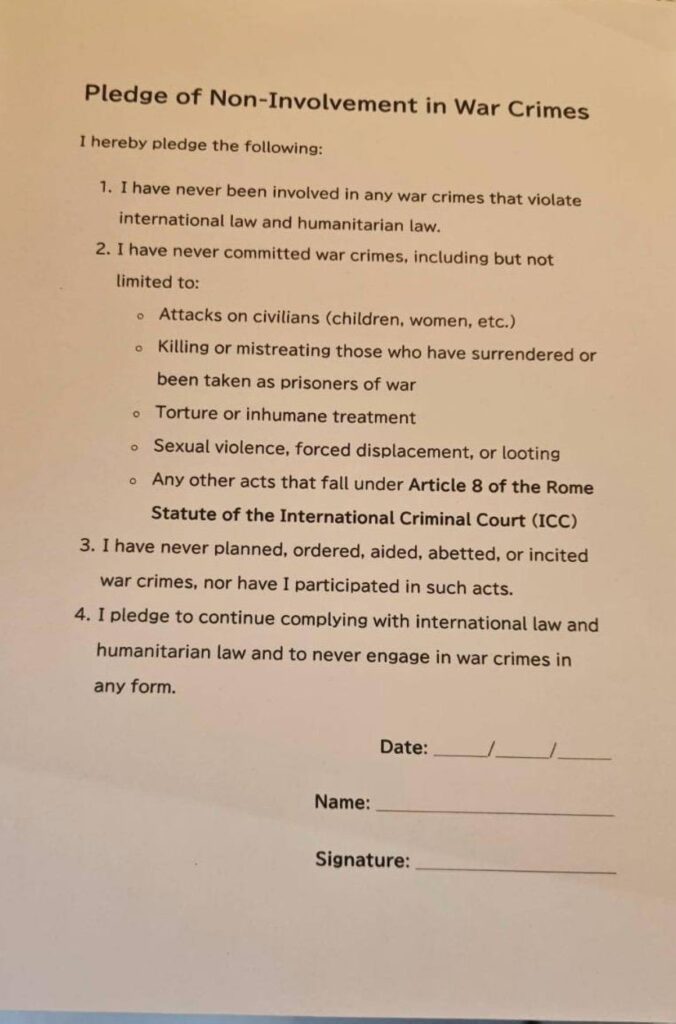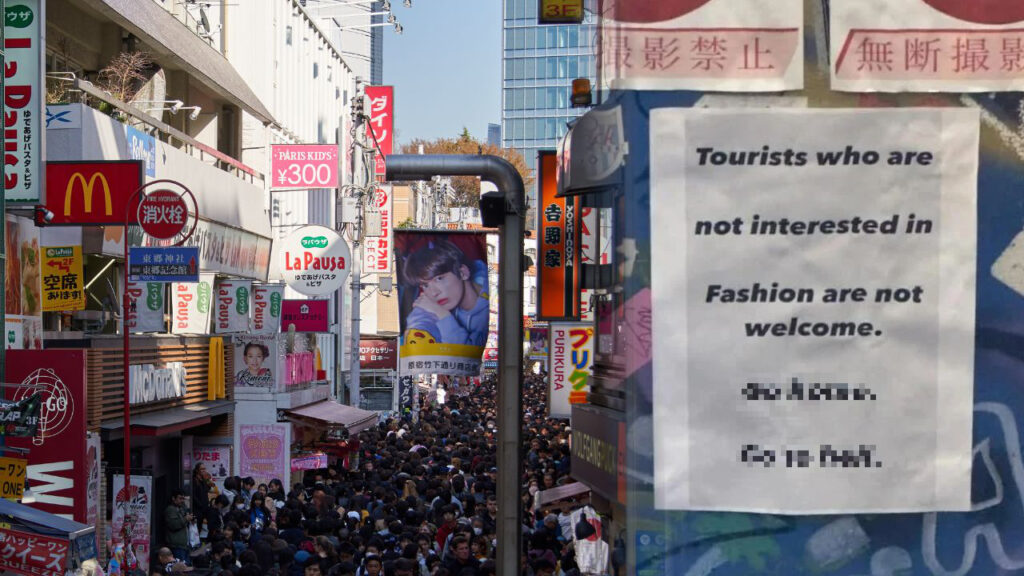Kyoto hotel asks Israeli tourist to confirm if he had “committed war crimes”

A diplomatic row has erupted after an Israeli tourist to Japan was asked whether he had “committed war crimes” upon arriving at his hotel.
In April, an Israeli tourist checking into the Wind Villa guesthouse in Kyoto was presented with a document requiring him to declare that he had not committed war crimes.

This incident prompted Gilad Cohen, the Israeli ambassador to Japan, to lodge a formal protest against the Kyoto Gov. Takatoshi Nishiwaki, citing discrimination.
According to a letter from Gilad Cohen, the tourist was asked to sign the form by the manager of the Wind Villa guesthouse in the city of Kyoto after presenting his passport during check-in.

The letter from Gilad Cohen specified that the tourist was informed that only Israeli and Russian nationals were subjected to this requirement to sign the document.
“This discriminatory act, based solely on nationality, caused the guest significant emotional distress,” stated Israeli Ambassador to Japan Gilad Cohen in his April 22nd letter to Kyoto Gov. Takatoshi Nishiwaki.
The letter also asserted that this practice violated the hotel business law.
“We trust that you will take the necessary steps to help ensure that such cases do not occur again and that Kyoto remains a welcoming destination for all visitors,” the letter from Gilad Cohen concluded.
In an open letter to Gilad Cohen on X, the Wind Villa guesthouse stated that it mandates all guests identified as “potentially having been involved in war crimes” to sign the document.

A representative for Wind Villa has stated to news outlets that this requirement had been in effect for the past six months.
“We truly wish for you to understand: staying in the same place as someone who may have committed war crimes causes significant psychological stress for other guests and staff, especially in small hotels like ours where many spaces are shared,” the Wind Villa letter explained.
The Wind Villa guesthouse’s letter further detailed that individuals subject to these requests include those from Burundi, Central Africa, Ethiopia, Israel, Mali, Myanmar, Palestine, Russia, Syria, and Sudan who have served in military or paramilitary organizations within the last decade.
According to the Israeli news outlet Ynet, the tourist in question served as a combat medic in the Navy reserves during his service in the Israel Defense Force.

Wind Villa clarified that individuals who declare they are not involved in the military will not be asked to sign the document, emphasizing that the purpose was to ensure a safe stay for other guests and not rooted in discrimination.
“I have a duty as the facility manager to make every reasonable effort to ensure that all guests can enjoy a safe and comfortable stay. Even in cases where guests can refuse to sign the pledge, we do not deny them accommodation,” the Wind Villa guesthouse asserted.
Upon becoming aware of the incident, Kyoto Prefecture instructed the Kyoto city government, which holds jurisdiction over such matters, to conduct an investigation on April 24th.
Subsequently, the city determined that the Wind Villa guesthouse had not violated the hotel business law, which prohibits hotel operators from refusing reservations “without good reason,” because guests were permitted to stay even if they declined to sign the paper, according to a city official.

However, the city conveyed to the Wind Villa guesthouse that making such a request was “inappropriate.”
Israeli ambassador Gilad Cohen has since stated that the embassy had not received an official response from the Japanese authorities.
“Contrary to what has been stated, it is a fact that the hotel conditioned the Israeli guest’s stay upon signing the said form,” he said.
“This is a clear case of discrimination against Israeli nationals and citizens of other countries, and a severe violation of the Inns and Hotels Act.”
“We categorically reject any attempt to equate Israeli citizens with war criminals,” he added, while acknowledging that this isolated incident does not reflect Japan’s tourism and hospitality sector as a whole.
Notably, last year, an Israeli national was denied accommodation at a different hotel in Kyoto based on his nationality, which led the city to issue a verbal warning.
Source: The Japan Times

This post may contain affiliate links, and Essential Japan may earn a commission if you purchase through them.






